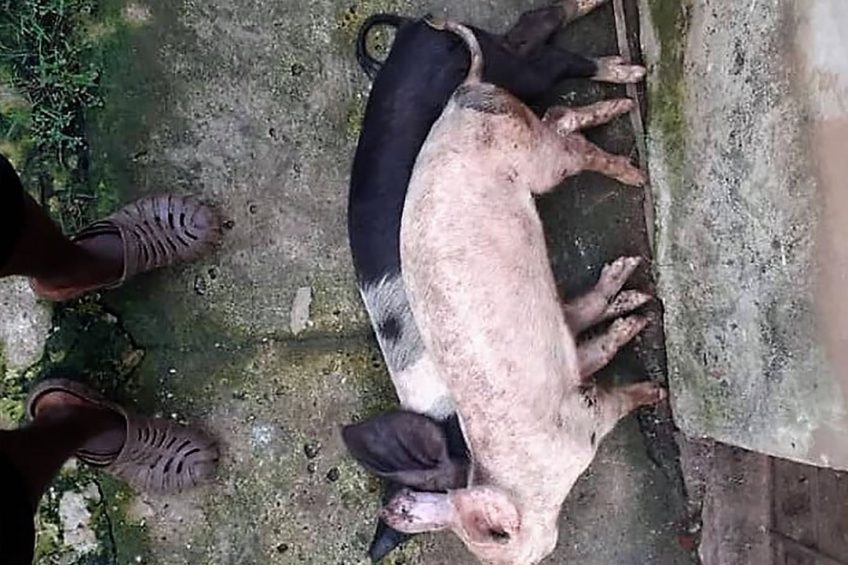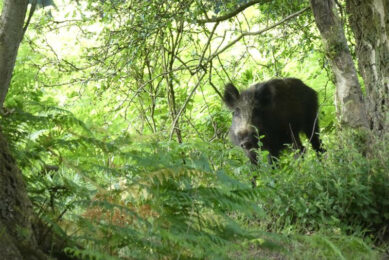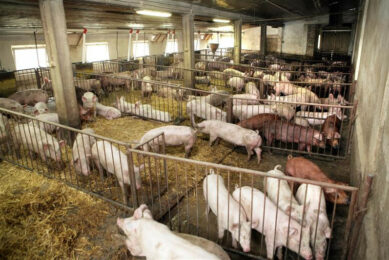ASF Nigeria: Fears of up to 1 million pigs dead

Not only Asian and European countries are fighting African Swine Fever (ASF). Fears are that in Nigeria, almost a million pigs have died from ASF, following an unprecedented outbreak that devastated the livelihood of thousands of farmers.
In the past decade, ASF has surfaced in several parts of Africa. Between 2016 and 2019, 63 outbreaks were reported across the continent, resulting in the deaths of 42,000 pigs, according to the World Organization for Animal Health (OIE) ASF report. The most recent outbreak in Nigeria is by far the worst that has been experienced in the country.
Nigeria ranks among the top countries in Africa with regard to pig production. In 2019, 298,000 metric tonnes of pork were produced. Over the last 10 years, Nigeria’s pig industry has grown by 40%, according to figures by the Pig Farmers Association of Nigeria (PFAN).
ASF outbreak of epidemic proportions
Benjamin Oyedeji is national secretary of the PFAN. In correspondence with Pig Progress he explained that the outbreak was first reported in early 2020 at a private farm in Ogun state, in the south west of the country, bordering Benin. It then spread to pig farms in neighbouring Lagos state. Initially, many of the affected farms did not know the cause of death of their pigs and, as such, did not raise any alarm.
‘Epidemic proportions’
Dr Oladipo Omotosho of the Department of Veterinary Medicine at the University of Ibadan, Nigeria, said the outbreak is at ‘epidemic proportions’, at the academic news platform The Conversation. He added, “The rate of spread within and between farms is alarming and the death rate is higher than has been seen in the last 12 years. There are farms that have experienced the deaths of hundreds of pigs within 24 hours. The major reasons are weak farm biosecurity, disease surveillance and warning systems.”

Oyedeji further attributed the rapid spread of infections to farm visits and the sale of infected animals.
Pig sector severely affected
Oke Aro Farms in the state of Lagos has the largest pig farmer cluster in the whole of West Africa with at least 1 million pigs. “As of May 2020, more than 600,000 breeders and matured growers have been lost to ASF, excluding culled and sick animals,” said Oyedeji about the situation at Oke Aro farms. He added that this has posed more stress to farmers as about 85% of the piglets had lost their suckling sows. “Other states such as Delta and Abia are also drastically affected with dead animals rising in tens of thousands. Sadly, the Oke Aro farm community has recorded at least 4 deaths among farmers.”

How did Nigeria’s pig industry develop in the last few decades? Check the statistics.
UK-based newspaper The Guardian reported that farmers estimated that the local pig industry has lost up to 20 billion Nigerian naira (US$ 51.6 million), and that more than 20,000 jobs are at risk.
Resuscitate the dying pig industry
At least a quarter of the states in Nigeria has been affected by ASF, Oyedeji estimates. Unfortunately, very little has been done so far to help farmers, he added. “The Lagos State government intervened and provided succor to farmers as encouragement. Tonnes of sorghum and corn were provided in Oke Aro, but this gesture is nothing compared to the losses of the farmers. Preventive measures and financial assistance would have done much more,” he said.

“We are hopeful that more support will come from the government to resuscitate the dying pig industry in Nigeria. The ministry of agriculture was actually on the ground fumigating some of the infected farms.”
To assist farmers both now and in the future, PFAN, in collaboration with various organisations, are arranging training on biosecurity and proper farm management. Oyedeji believes that this has given hope to farmers.











